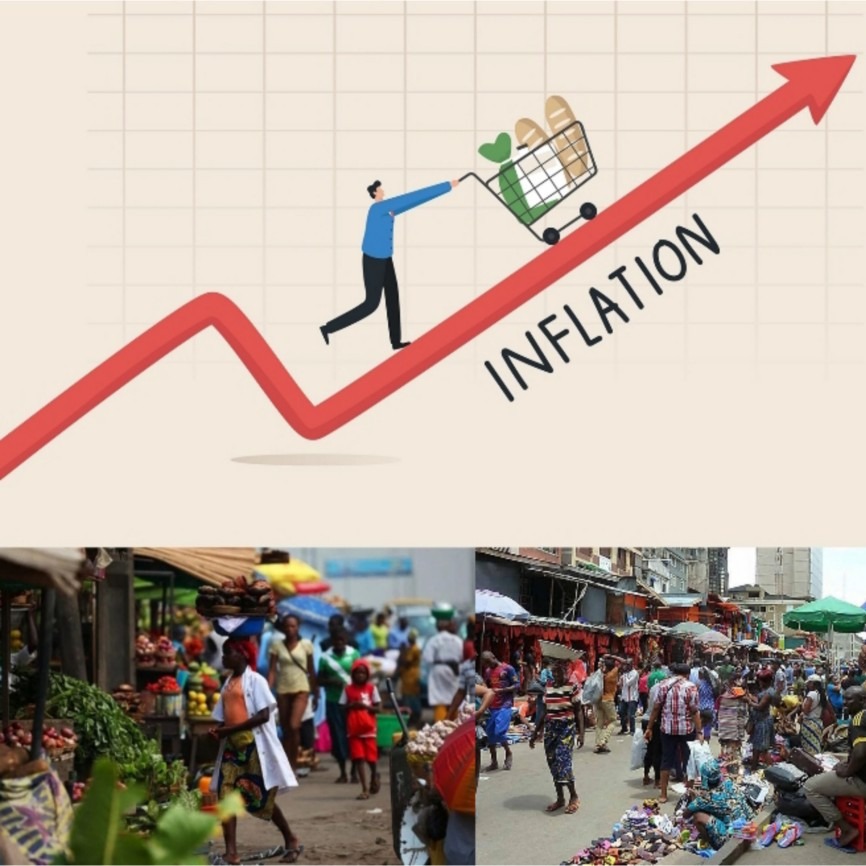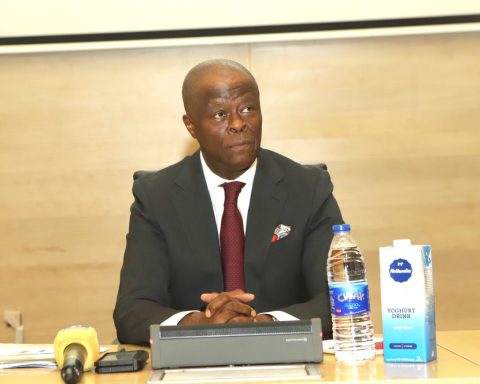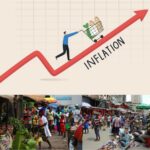Economists are pointing to a combination of factors, including a weaker naira and high fuel prices, as the driving forces behind Nigeria’s soaring inflation rate, which has now reached 29.90% as of January 2024.
The latest figures from the National Bureau of Statistics reveal a continuous climb from the previous month’s 28.92%, contradicting earlier hopes of a slowdown.
“The naira’s depreciation, alongside escalating diesel prices and logistical costs, are contributing significantly to this surge,” explained Bismarck Rewane, CEO of Financial Derivatives Company Limited. “Additionally, there’s a noticeable impact from increased inflation expectations among consumers.”
This economic turmoil is hitting hard, particularly in the food sector, where prices have spiked by 35.41% year-on-year. Essential items like bread, cereals, and meats are becoming increasingly unaffordable for many Nigerians. Even promises of government intervention, such as grain releases for the needy, have failed to alleviate the burden.
The repercussions extend beyond statistics, spurring protests across the nation as citizens demand solutions to the escalating cost of living.
However, while the government pledges action, the root issues persist. Insecurity in farming communities, logistical challenges, and a lack of investment in agriculture continue to hinder efforts to stabilize food prices.
READ ALSO: Inflation: LCCI Urges Govt Action Amid Economic Challenges
“The current inflationary pressures are deeply troubling,” remarked Muda Yusuf, CEO of the Centre for the Promotion of Private Enterprises. “Purchasing power is eroding, pushing more Nigerians into poverty and stifling economic growth.”
The impending response from the Central Bank’s monetary policy committee looms large, with expectations of a substantial interest rate hike at their upcoming meeting. This move aims to curb inflation but raises concerns about its impact on businesses already struggling to stay afloat.
Marcel Okeke, former Zenith Bank Chief Economist, questioned the feasibility of reducing inflation to 21% within the projected timeframe, highlighting the need for a more secure investment climate to attract foreign capital.
Dr. Alias Aliyu emphasized the urgency of addressing food production challenges, citing the ongoing insecurity and high borrowing costs stifling agricultural growth.
As the nation grapples with these economic challenges, the path forward remains uncertain. However, one thing is clear: without decisive action to address the underlying issues driving inflation, the road to recovery will be long and arduous for Nigeria’s economy.
Emmanuel Ochayi is a journalist. He is a graduate of the University of Lagos, School of first choice and the nations pride. Emmanuel is keen on exploring writing angles in different areas, including Business, climate change, politics, Education, and others.


















Follow Us